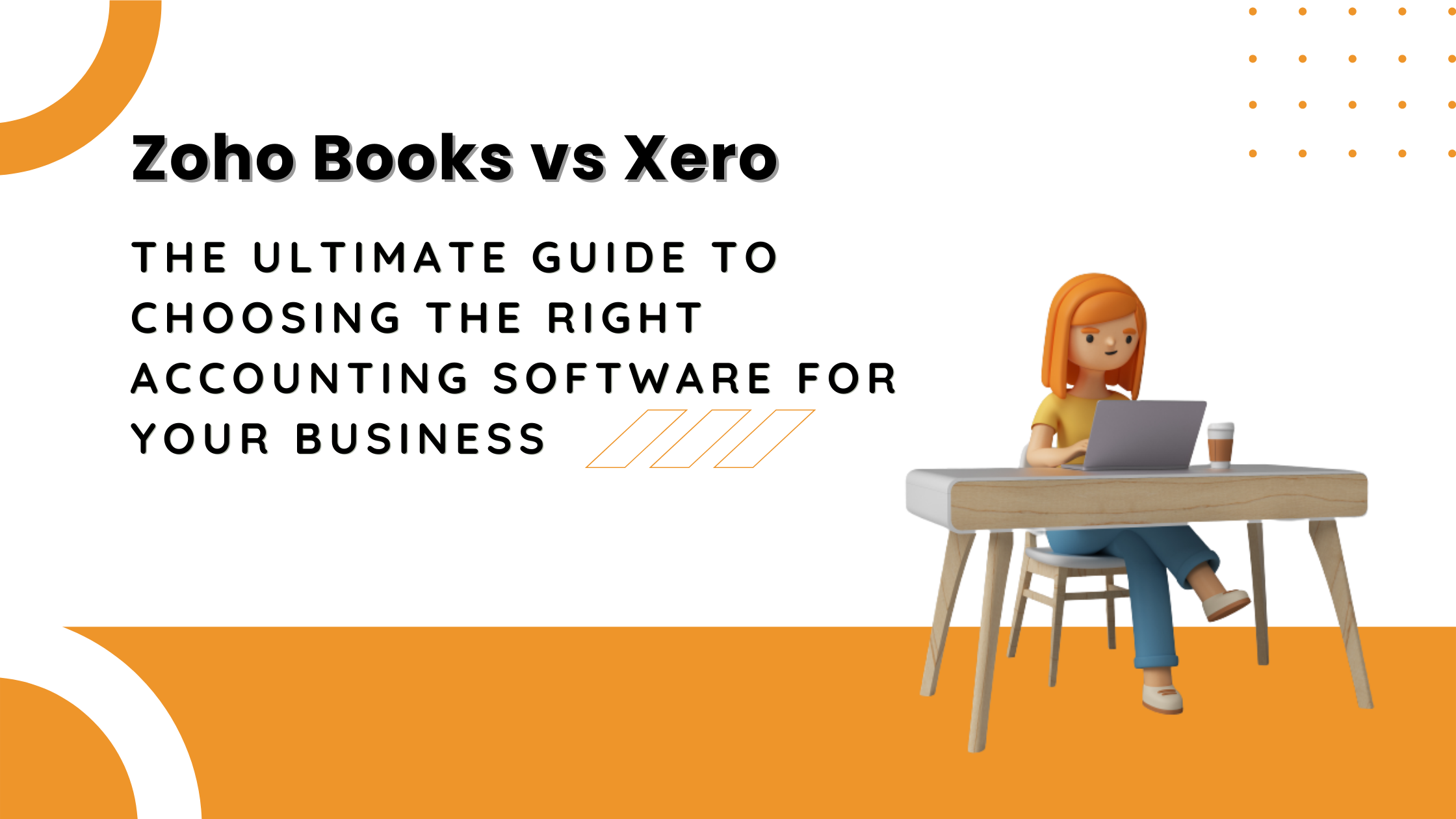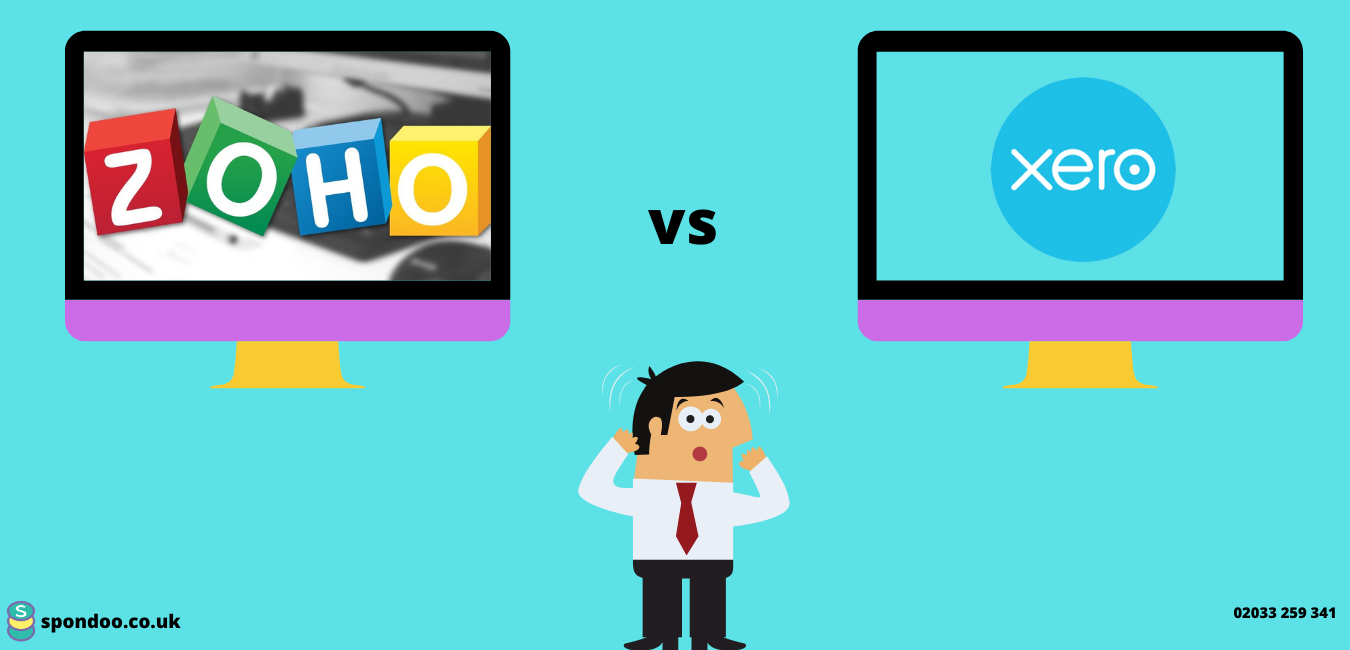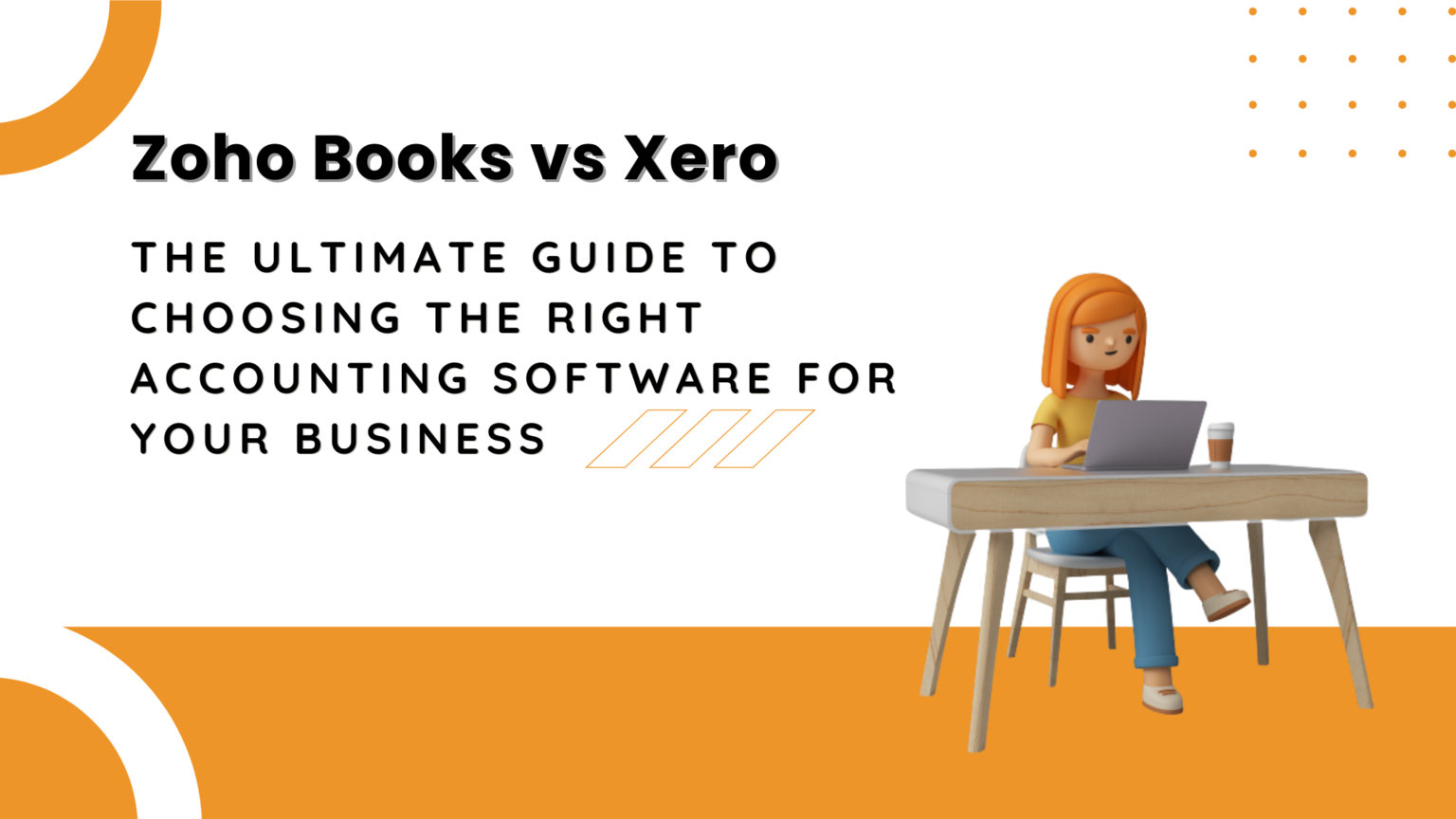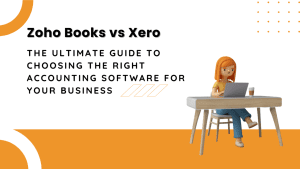“Compare Zoho Books vs Xero in this ultimate guide. Discover key features, pricing, pros, and cons to choose the best accounting software for your business.”
Comparing these two can help you find the right fit for your needs. Both platforms offer unique features that cater to different aspects of accounting. Understanding their differences can save you time and money. In this detailed comparison, we will look at key features, pricing, and ease of use.
This will help you decide which software suits your business best. Let’s dive into the details and see which one stands out.

Credit: m.youtube.com
Overview Of Zoho Books
Zoho Books is an online accounting software that caters to small and medium-sized businesses. It helps business owners manage their finances, automate workflows, and stay tax compliant. With its user-friendly interface and robust features, Zoho Books has gained popularity among entrepreneurs and accountants alike.
Key Features
Zoho Books offers a wide range of features designed to simplify accounting tasks. Some key features include:
- Invoicing: Create and send professional invoices to clients.
- Expense Tracking: Track and categorize expenses easily.
- Bank Reconciliation: Match transactions with bank statements.
- Project Management: Track project time and expenses.
- Inventory Management: Manage inventory levels and orders.
- Multi-Currency Support: Handle transactions in different currencies.
- Automation: Automate repetitive tasks to save time.
- Tax Compliance: Generate tax reports and stay compliant.
Pricing Structure
Zoho Books offers several pricing plans to suit different business needs:
| Plan | Monthly Cost | Annual Cost | Key Features |
|---|---|---|---|
| Basic | $9 | $90 | Up to 50 contacts, 1 user, 1 accountant |
| Standard | $19 | $190 | Up to 500 contacts, 3 users, 1 accountant |
| Professional | $29 | $290 | Unlimited contacts, 10 users, 1 accountant |
Pros And Cons
Zoho Books has several advantages and some limitations:
- Pros:
- Easy to use interface.
- Comprehensive feature set.
- Affordable pricing plans.
- Strong customer support.
- Regular updates and improvements.
- Cons:
- Limited third-party integrations.
- Learning curve for advanced features.
- Mobile app could be more robust.

Credit: www.mmcconvert.com
Overview Of Xero
Xero is a popular cloud-based accounting software. It is designed for small and medium-sized businesses. It offers a range of features to help you manage your finances. Xero is known for its user-friendly interface and robust functionality.
Key Features
Xero provides several key features that make it stand out:
- Invoicing: Create and send professional invoices quickly.
- Bank Reconciliation: Automatically import and categorize bank transactions.
- Expense Management: Track and manage expenses easily.
- Inventory Management: Monitor stock levels and manage inventory.
- Payroll: Manage employee payroll and tax filings.
- Reporting: Generate financial reports for better insights.
Pricing Structure
Xero offers three pricing plans:
| Plan | Monthly Cost | Features |
|---|---|---|
| Early | $12 |
|
| Growing | $34 |
|
| Established | $65 |
|
Pros And Cons
Let’s explore the pros and cons of using Xero:
Pros:
- Easy to use interface
- Comprehensive feature set
- Strong integration with third-party apps
- Excellent customer support
Cons:
- Higher cost for advanced features
- Limited customization options
- Learning curve for new users
User Interface And Experience
The user interface and experience of an accounting software can make or break the ease of managing finances. Both Zoho Books and Xero offer unique interfaces designed to help users navigate and perform tasks efficiently. Let’s dive into the specifics.
Ease Of Use
Zoho Books offers an intuitive interface with a clean design. Users find the dashboard straightforward with all key features accessible from the main screen. The navigation is smooth, helping users complete tasks quickly.
Xero also provides a user-friendly interface. The dashboard is visually appealing, featuring a modern design. Users appreciate the simplicity of accessing various functions with minimal clicks.
Customization Options
Zoho Books excels in customization. Users can tailor the dashboard to fit their needs, adding or removing widgets as required. Reports and invoices can also be personalized with company branding and specific fields.
Xero offers robust customization options as well. Users can adjust the layout of their dashboard, ensuring critical information is always visible. Invoice templates and reports can be customized, supporting various business requirements.
| Feature | Zoho Books | Xero |
|---|---|---|
| Dashboard Design | Clean and Intuitive | Modern and Appealing |
| Navigation | Smooth and Quick | Simple and Accessible |
| Widget Customization | Highly Customizable | Robust Customization |
| Report Personalization | Extensive Options | Wide Range |
Accounting And Financial Features
Choosing the right accounting software is essential for managing your finances. Zoho Books and Xero are two popular options. In this section, we will delve into their accounting and financial features. Understanding these can help you decide which one suits your business needs better.
Invoicing And Billing
Both Zoho Books and Xero offer robust invoicing and billing features. Zoho Books allows you to create and send invoices in multiple currencies. It supports customizable templates, recurring invoices, and payment reminders.
Xero also offers extensive invoicing capabilities. You can create, send, and automate invoices. It integrates with many payment gateways, making it easy to get paid.
| Feature | Zoho Books | Xero |
|---|---|---|
| Customizable Templates | Yes | Yes |
| Recurring Invoices | Yes | Yes |
| Multi-Currency Invoicing | Yes | Yes |
Expense Tracking
Tracking expenses is crucial for maintaining your budget. Zoho Books provides an intuitive expense tracking system. You can attach receipts, categorize expenses, and set up recurring expenses.
Xero offers a similar expense management feature. It allows you to capture receipts via mobile apps, categorize expenses, and manage employee expenses efficiently.
- Receipt Attachments: Both platforms allow you to attach receipts to expenses.
- Expense Categorization: You can categorize your expenses for better tracking.
- Mobile App: Both offer mobile apps for expense management on the go.
Tax Management
Managing taxes efficiently is vital for any business. Zoho Books provides comprehensive tax management tools. You can calculate taxes, file returns, and generate tax reports with ease.
Xero also excels in tax management. It helps you stay compliant with tax regulations, file returns, and generate detailed tax reports.
- Tax Calculation: Both platforms calculate taxes automatically.
- Tax Filing: You can file tax returns directly through the software.
- Tax Reports: Generate detailed tax reports for better insights.
Integration Capabilities
Choosing the right accounting software depends on many factors. One important factor is integration capabilities. Both Zoho Books and Xero offer various integration options to enhance functionality. This section will compare their integration capabilities, focusing on third-party apps and API and custom integrations.
Third-party Apps
Third-party apps extend the functionality of accounting software. They offer additional features and tools. Both Zoho Books and Xero integrate with many third-party apps.
| Zoho Books | Xero |
|---|---|
| Over 40 app integrations | Over 800 app integrations |
| Popular apps: G Suite, PayPal, Slack | Popular apps: Shopify, Stripe, HubSpot |
| Focus on small business tools | Wide range of business solutions |
Api And Custom Integrations
APIs allow for custom integrations. They help tailor the software to specific business needs.
- Zoho Books: Offers a comprehensive API. This supports various functions like invoicing, expenses, and contacts. Developers can create custom integrations. This allows businesses to streamline their workflows.
- Xero: Provides a robust API. This includes endpoints for accounting, payroll, and more. Developers can use these to build custom solutions. This enhances the software’s utility.
Both platforms offer strong integration capabilities. Zoho Books has fewer third-party apps but offers solid custom integration options. Xero provides a wider range of third-party apps and a versatile API.
Customer Support
Customer support is crucial for any software. It ensures users get help when they need it. Both Zoho Books and Xero offer support. But which one stands out? Let’s find out.
Support Channels
Zoho Books provides multiple support channels. Users can reach out via email, phone, or live chat. They also offer an extensive knowledge base. This helps users find answers quickly.
Xero also offers diverse support options. Users can contact them through email, phone, or chat. They provide a comprehensive help center. This includes tutorials and FAQs for quick assistance.
Response Time And Effectiveness
Zoho Books is known for its quick response times. Most users report getting help within a few hours. Their support team is efficient and knowledgeable. Users often praise their problem-solving skills.
Xero’s response time is also commendable. Users typically receive responses within a day. Their support team is effective and helpful. They ensure users get the assistance they need promptly.
User Reviews And Feedback
Understanding user reviews and feedback can help you make an informed decision. Both Zoho Books and Xero have a wide range of user reviews. These reviews provide insights into what users love and what they wish to see improved.
Positive Experiences
Many users praise Zoho Books for its ease of use. The interface is intuitive and clean. It offers a seamless experience for beginners. Users also appreciate the comprehensive features. These include invoicing, expense tracking, and inventory management.
Xero users highlight its robust accounting capabilities. It integrates well with various third-party apps. Users find its reporting tools very detailed. The cloud-based system is reliable. This allows access from anywhere, which users find convenient.
Common Complaints
Zoho Books users often mention limited integrations. They find fewer options compared to Xero. Some users also note occasional software bugs. These can disrupt workflow. Customer support sometimes gets mixed reviews.
Xero users frequently point out its higher cost. They find it expensive for small businesses. Another common complaint is the steep learning curve. New users may need more time to get used to it. Some users also face issues with bank feeds.

Credit: www.spondoo.co.uk
Frequently Asked Questions
What Are The Key Features Of Zoho Books?
Zoho Books offers features like automated workflows, invoice management, expense tracking, and detailed financial reports. It also integrates with various third-party apps. Zoho Books supports multi-currency transactions and provides comprehensive customer support.
How Does Xero Handle Invoicing?
Xero simplifies invoicing with customizable templates, automated reminders, and online payment options. It also offers detailed tracking and reporting. You can send invoices directly from the app. Xero integrates with various payment gateways.
Is Zoho Books Suitable For Small Businesses?
Yes, Zoho Books is ideal for small businesses. It provides affordable pricing, easy-to-use features, and scalable solutions. Zoho Books also offers comprehensive customer support and integrates with popular business tools.
Can Xero Integrate With Other Software?
Yes, Xero integrates with over 800 third-party apps. These include CRM systems, payment gateways, and e-commerce platforms. This integration enhances business efficiency and streamlines processes.
Conclusion
Choosing between Zoho Books and Xero depends on your needs. Zoho Books offers excellent invoicing and project management. Xero shines with its vast integrations and payroll features. Both have user-friendly interfaces and strong customer support. Evaluate your business size, budget, and specific requirements.
This will guide you to the right choice. Make your decision wisely to improve your business efficiency. Both software options can streamline your accounting tasks effectively.









